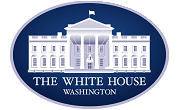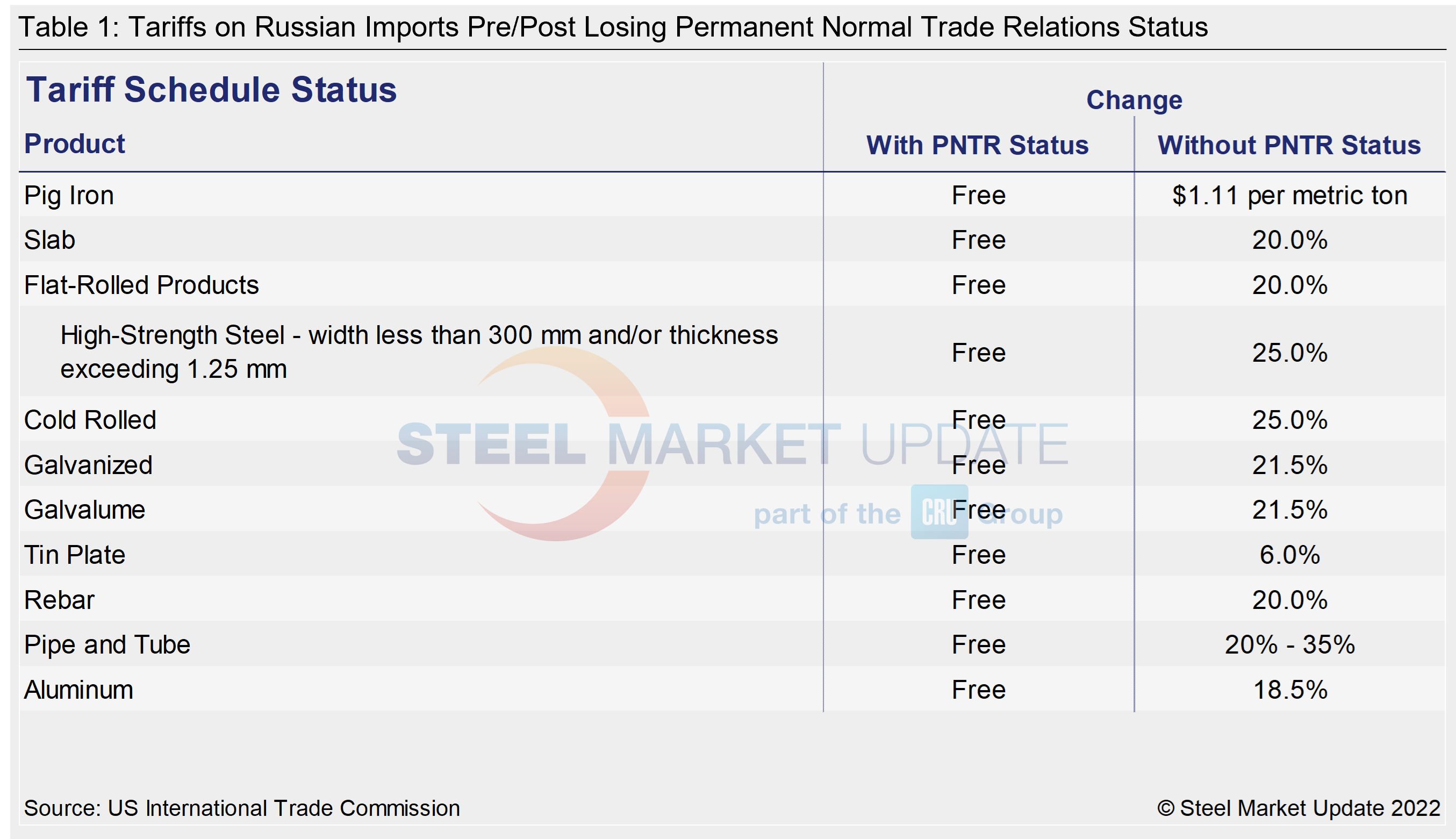Product

April 8, 2022
Biden Signs Law to Cut 'Normal' Trade With Russia, Unleashes Higher Steel Tariffs
Written by Michael Cowden
President Joe Biden on Friday signed into law a bill stripping Russia and Belarus of what’s known as “permanent normal trade relations,” or PNTR.
The president also signed into law a bill prohibiting imports of energy products from Russia.
![]() President Biden’s actions came after the Senate unanimously voted on Thursday to pass a bill to remove PNTR from Russia. The House of Representative overwhelmingly passed a similar measure in late March.
President Biden’s actions came after the Senate unanimously voted on Thursday to pass a bill to remove PNTR from Russia. The House of Representative overwhelmingly passed a similar measure in late March.
Sources had said earlier on Friday that Biden would sign the bills later in the day. Russia and Belarus as a result join North Korea in losing preferential trade treatment.
{loadposition reserved_message}
As far as steel and metals markets go, the main effect will be sharply increased tariffs on Russian steel (roughly 20-40%) and aluminum – but not on pig iron. (See chart below.)
The paperwork was sent to the White House on Thursday evening, was signed into law on Friday, and the higher duty rates will go into effect on Saturday, sources said. They noted that Congress was eager to get the work done before breaking for two weeks for the Easter and Passover holidays.
The text of the legislation is here. “This is something the president supports, had called for, and certainly plans to sign,” White House press secretary Jen Psaki said during a press conference on April 7.
It allows includes language that allows the president – in consultation with Congress – to further increase tariffs. That authority to boost tariffs expires on Jan. 1, 2024.
The move was cheered by US Trade Representative Katherine Tai, one of nation’s top trade negotiators.
“This swift action shows our determination to isolate Russia from the global economy and multilateral institutions,” Tai said in a statement on Friday.
Those laws on PNTR and energy imports come on top of punitive sanctions already rolled out by the Biden administration in response to Russian forces invading Ukraine in February.
“As a result, the Russian economy has cratered, and hundreds of companies have announced plans to leave the country,” she said.
The European Union, Japan and other US allies have also taken steps to revoke what is known as “most-favored nation” (MFN) status from Russia. MFN is equivalent to PNTR in the US.
Domestic steel groups have supported the trade penalties levied against Russia and Belarus, a close ally of the Russian Federation.
Changes in US trade policy toward Russia could have big implications for steel because Russia is one of the biggest foreign steel suppliers to the US market.
The US imported 1.47 million metric ton of steel from Russia in 2021, making it the fifth largest supplier of foreign steel to the domestic market, according to Commerce Department figures. The bulk of that steel, 1.29 million tons, was semifinished products, a category that includes slabs.
SMU’s chart below focuses mostly on what the loss of PNTR means for pig iron, slab and certain finished steel products.
It is based on information from the US International Trade Commission web page on the Harmonized Tariff Schedule. If you want more detailed inforation, you can find that here. Chapter 72 and Chapter 73 pertain to iron and steel products. Chapter 76 addresses aluminum goods. For the policy wonks among you, the law signed today will increase tariffs from column 1 to column 2. And the president, under Section 3.b authority, has the right to further increase the column 2 rates should he wish to apply additional pressure on Russia.

By Michael Cowden, Michael@SteelMarketUpdate.com







